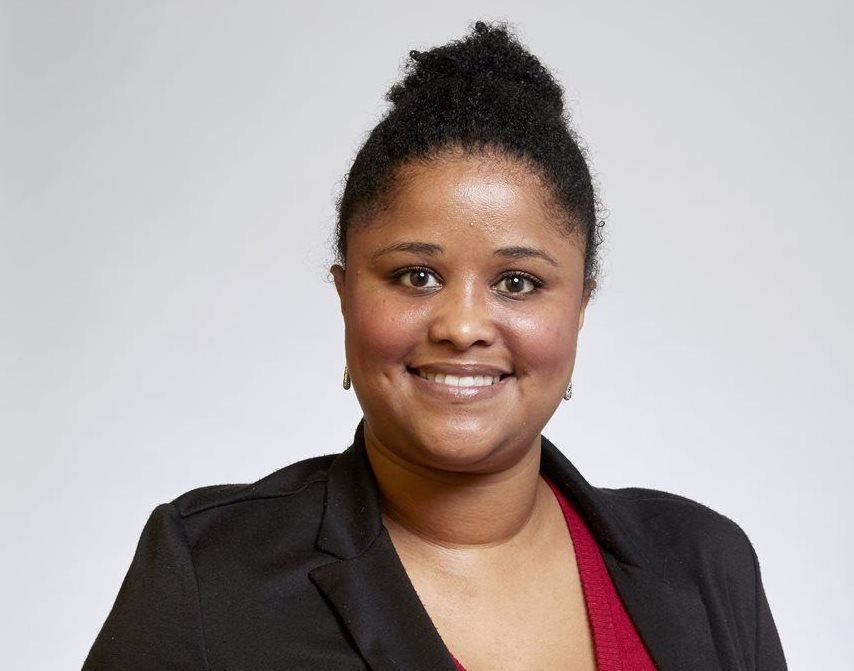
Subscribe & Follow
#StartupStory: AstroComms provides STEM knowledge for all
We chat to Dr Tana Joseph, founder and director of AstroComms, who is actively involved in outreach and science engagements at various astronomy institutions...

Can you tell us a bit about AstroComms?
AstroComms is a science, technology, engineering and mathematics (STEM) communications and consulting company. It's a fairly broad remit in that we work with creatives, the private sector and in the education sector, helping to share knowledge, raise awareness and giving technical input about STEM and related fields.
When, how and why did you get started?
AstroComms was founded in October 2018, but I had been in the planning phase for about two years leading up to that. I come from an academic science background, so I had no business experience at all. What I did have was about ten years of experience in science research and communications.
So, after much discussion with a few friends, who were also entrepreneurs, I launched my company so that I could combine my research and my comms experience and raise awareness about STEM studies, careers and opportunities.
What is the core function of AstroComms?
The core function of AstroComms is providing technical STEM knowledge or advice in a way that is accessible to everyone.
What are some of the services that AstroComms offers?
Our communication services range from writing articles and blogposts to giving STEM talks at schools and science festivals. We also offer social media management for STEM organisations.
In terms of consulting, we provide technical input on STEM matters to creative projects, like writing a sci-fi TV show. We also serve as consultants for educational and learned societies on diversity and inclusion initiatives in STEM.

What are some of the obstacles you've had to overcome since starting out?
I've been very fortunate to have the support of my family, friends and even colleagues when it came to starting and running my business.
The biggest learning curve for me has been the day to day things, like making sure I'm tax compliant. Starting is business is all fine and well, but keeping things ticking over and making sure you have a proper paper trail, like invoices, etc. has taken up a lot more time than I thought it would.
What advice would you give to other aspiring entrepreneurs?Identify your unique selling point and build outward from there.
 What has been your proudest achievement thus far?
What has been your proudest achievement thus far?Working with people in creative arts, like screenwriters and science artists. I have spent my entire adult life either studying or doing science and I don't really consider myself a creative person. But since starting the company, I have been able to work with creatives and blend art with science and that has been very satisfying.
What do you think is the importance of startup accelerator/incubator programmes?
These programmes are great at getting entrepreneurs together where they can get support and inspiration.
What would you like to see changed in the South African startup landscape?
As with many aspects of society, the startup culture in South Africa doesn't reflect the demographics or the potential of South Africa. The idea of starting your own business is pushed quite heavily in this country, but the resources required to do so remain in the hands of a small group of people.
We need to make aspiring entrepreneurs aware of how to actually go about starting a business, how to obtain funding, etc.

What do you believe are the traits an entrepreneur needs in order to succeed?
Patience and tenacity.
Why would you encourage someone to become an entrepreneur?
If I had been asked this question three years ago, I would have said no. In fact, I was always adamant that running a business was not for everyone and certainly not for me. Famous last words, because once I realised that the intellectual property I had built up over the years as a researcher was actually worth something to people, it changed my mind entirely about what being a businessperson is all about.
So, today, I would certainly encourage someone to become an entrepreneur, especially if they already have a good business idea ready to go.
Where would you like to see AstroComms in the next five years?
At the moment, AstroComms is my side hustle. My five year, which started last year when I launched the business, is to make AstroComms my full-time job. I would like to branch out into other African countries as well.
There is a big focus on 4IR right now. How and what are you doing in the SA market?
4IR is a really trendy topic right now, especially in political spheres. However, there is still much confusion about what the Fourth Industrial Revolution actually is. And due to infrastructure issues, we are still a ways away from being able to start integrating 4IR into the way we do things in South Africa.
There needs to be a lot more done to ensure that the public, government at all levels and private sector are aware of what 4IR is, its potential pitfalls and benefits and ensuring that the benefits are passed on to everyone.
At AstroComms, we specialise in conveying complex STEM topics and ideas to non-experts. We would like to get more involved in educating relevant stakeholders about 4IR in a South African context.
What are some of the challenges that you find in SA with regards to STEM?
For me, there are three main issues in South Africa when it comes to STEM:
- A lack of resources in many schools to provide good quality STEM education. It is always heartbreaking when a young person says that they want to go into a STEM field, but it then transpires that they do not have access to the required subjects at their school.
- A lack of awareness of STEM subjects and STEM careers. Teachers and school officials are often not aware of careers are available to STEM graduates and so are not able to give the correct guidance to learners.
- Negative stereotypes associated with STEM. STEM, and especially science, is seen as something that is for boring, old, white men only, This is not just a problem in South Africa, but all over the world. Changing people's minds about who can participate, and excel, in STEM is one of the biggest challenges for me as a science communicator.
 What can the public, government and private sector do to promote STEM?
What can the public, government and private sector do to promote STEM?We can all work together to promote STEM. South Africa is a place of many cultures, languages, religions, opinions, etc. And for too long STEM practitioners have been from people with similar backgrounds. This leads to a lack of creativity, because if everyone doing STEM has similar life experiences that shaped them and their ideas, then they're going to try and solve problems in a similar.
By moving towards the mind set that STEM is for everyone, we can start to get more diverse and vibrant workplaces where problems are solved in unique and innovative ways, simply because a more diverse group of people are tacking the issues.
Specifically, parents should encourage their kids to be inquisitive and ask questions.
The government needs to have a firm understanding of what STEM is, and how it can help society and ensure that systems are in place to achieve their aims. This includes working to ensure that all children at school have access to the same educational opportunities.
The private sector has a lot to gain from STEM. STEM graduates have many of the skills required to thrive in corporate environments: proficiency in maths, and computer programming, analytical and problem-solving skills, as well as "soft skills" like public speaking and technical writing.
What trends in STEM will we be seeing in SA in 2020?
Big data is big news at the moment in STEM.
With astronomy and bioinformatics leading the way in terms of data-intensive research in South Africa and elsewhere, big data sets are everywhere. Being able to capture, move, store, visualise and gain useful information from these massive data sets (think data sizes of millions to billions of gigabytes) requires all aspects of STEM to optimise the cloud computing systems being used.
Ten years ago, "data scientist" wasn't a job anyone had heard of and now it's something that is massively in demand. So expect to see more innovation and world-leading developments in this field in the next year.
Related
Leruo Foundation launched to empower women and youth entrepreneurs 12 Mar 2025 Female entrepreneurs graduate from WiT Accelerator Programme, 5 walk away with $10,000 seed funding 7 Mar 2025 OceanX shows how AI is transforming marine research 26 Feb 2025 Breakthrough year of empowering the next generation of STEM professionals in the Northern Cape 20 Feb 2025 Rewiring STEM to accelerate girls and women empowerment 11 Feb 2025 New STEM lab at University of Limpopo opens gateways to AI, robotics skills 10 Dec 2024










